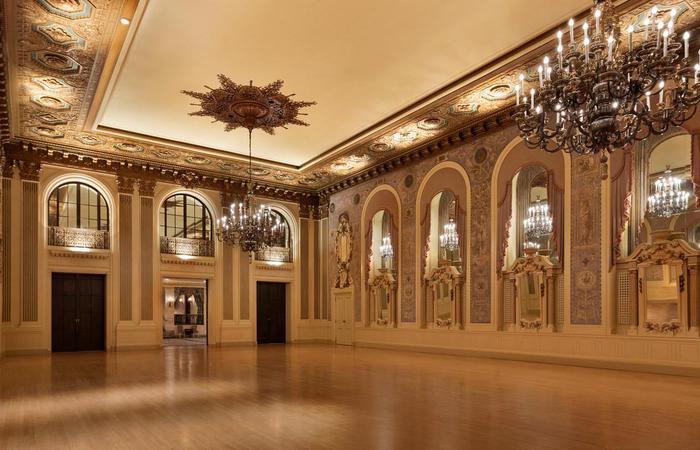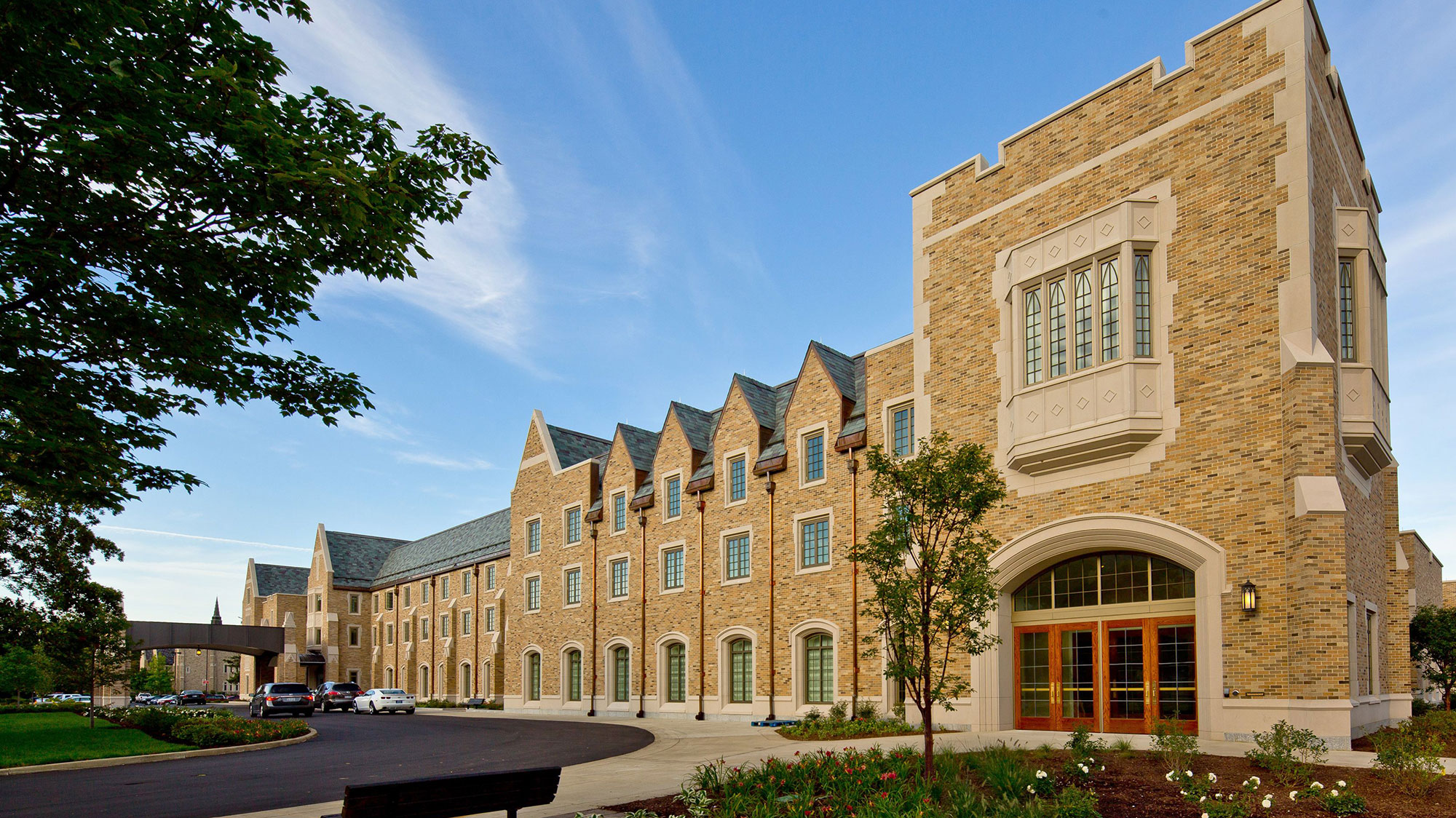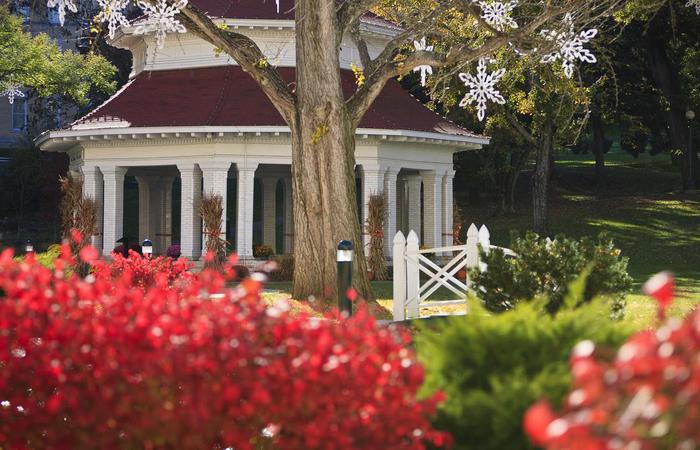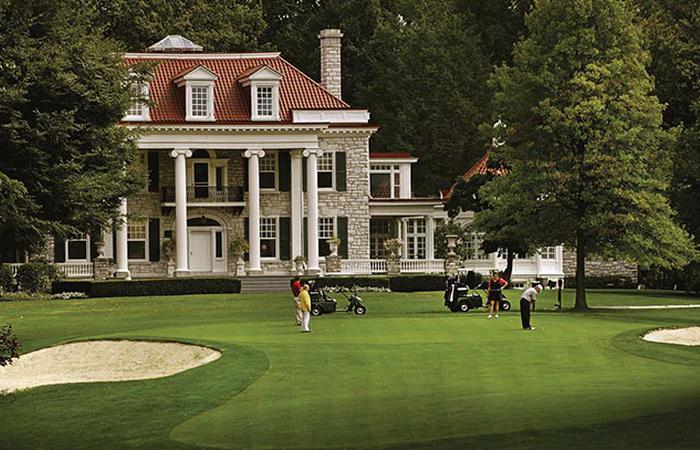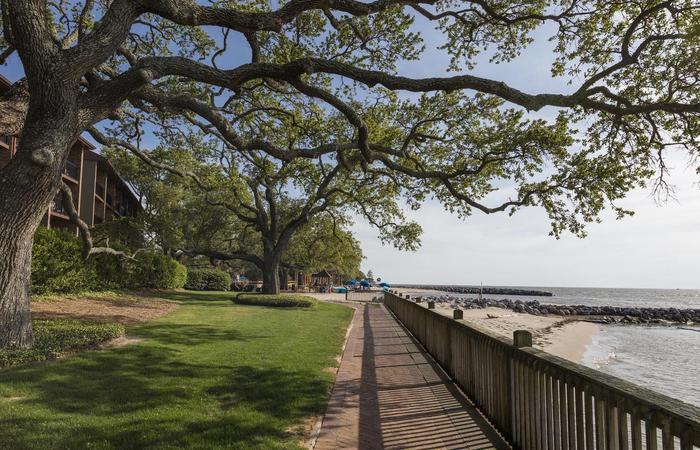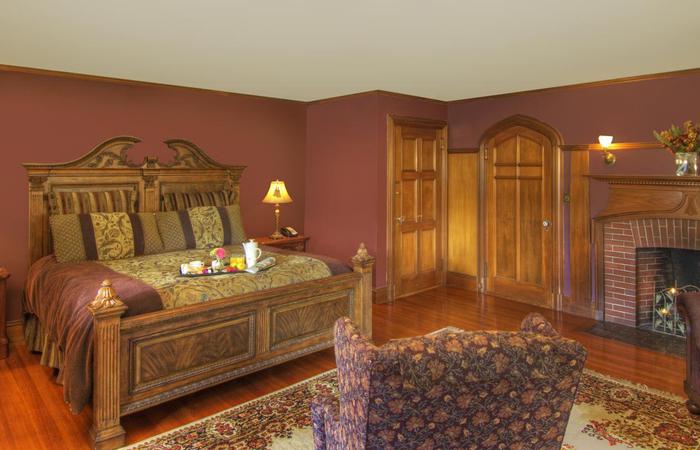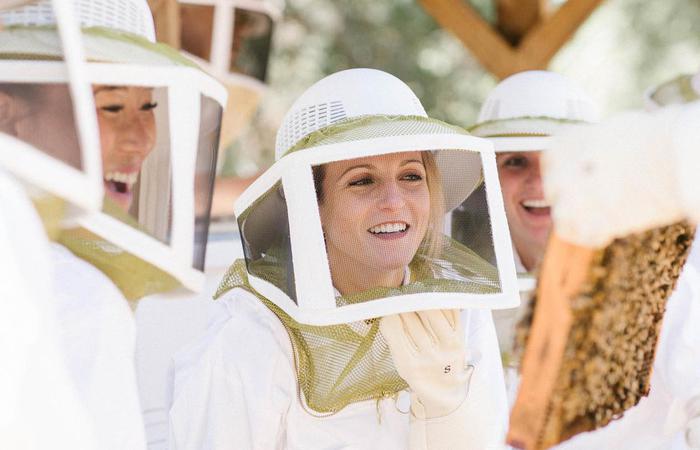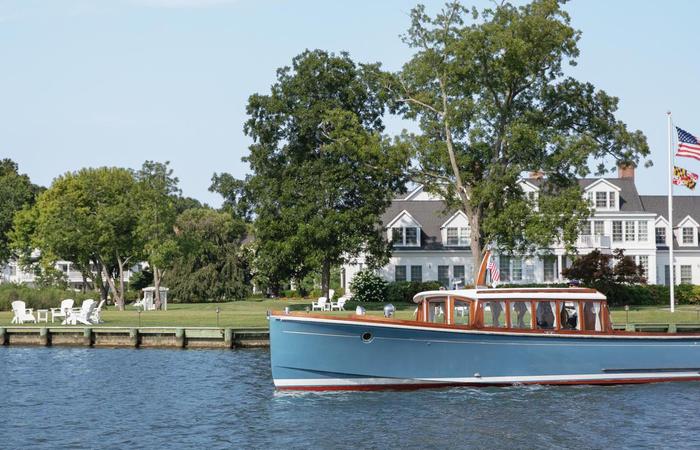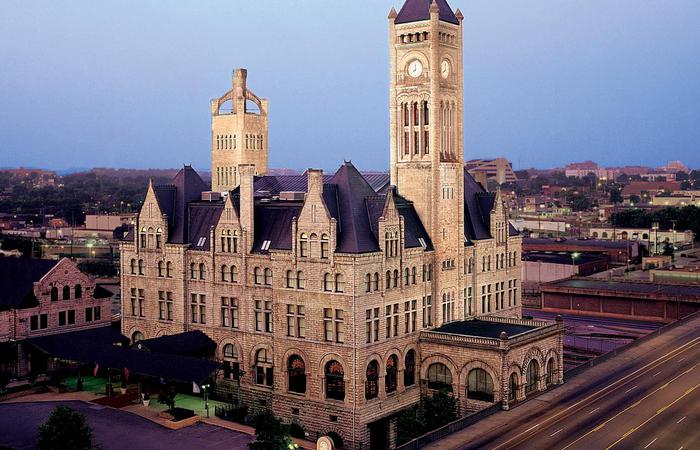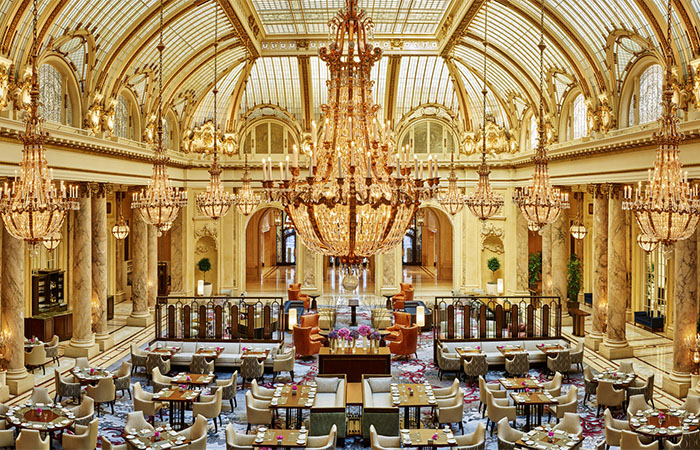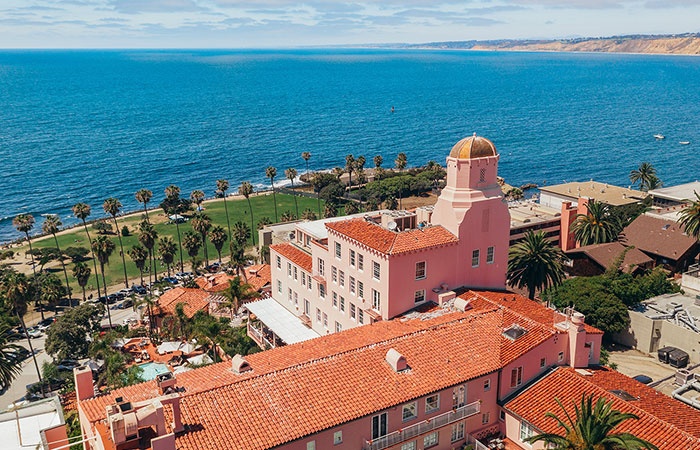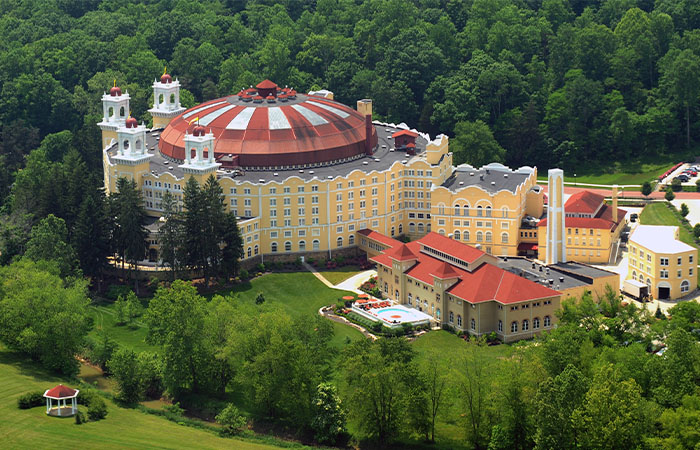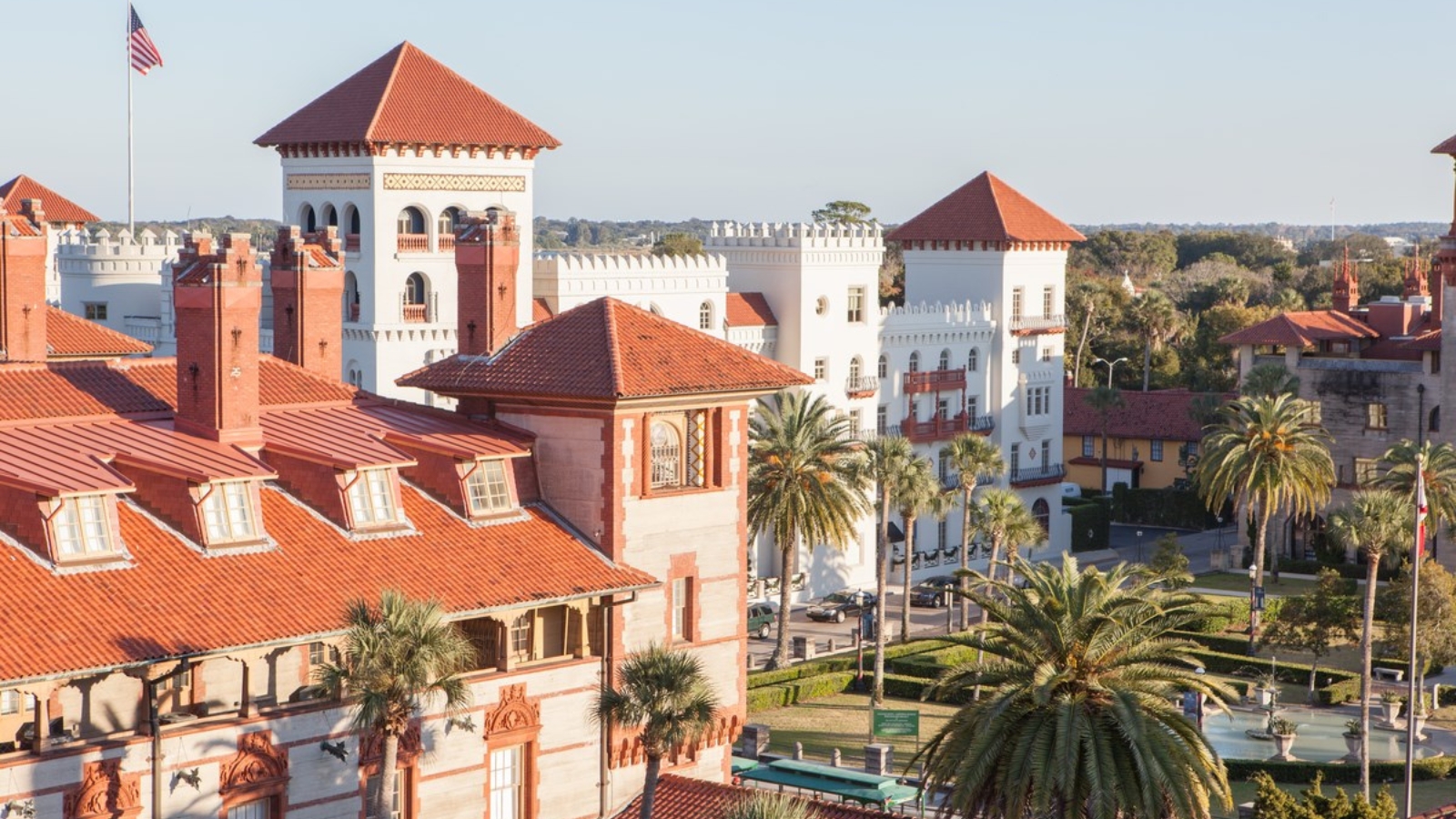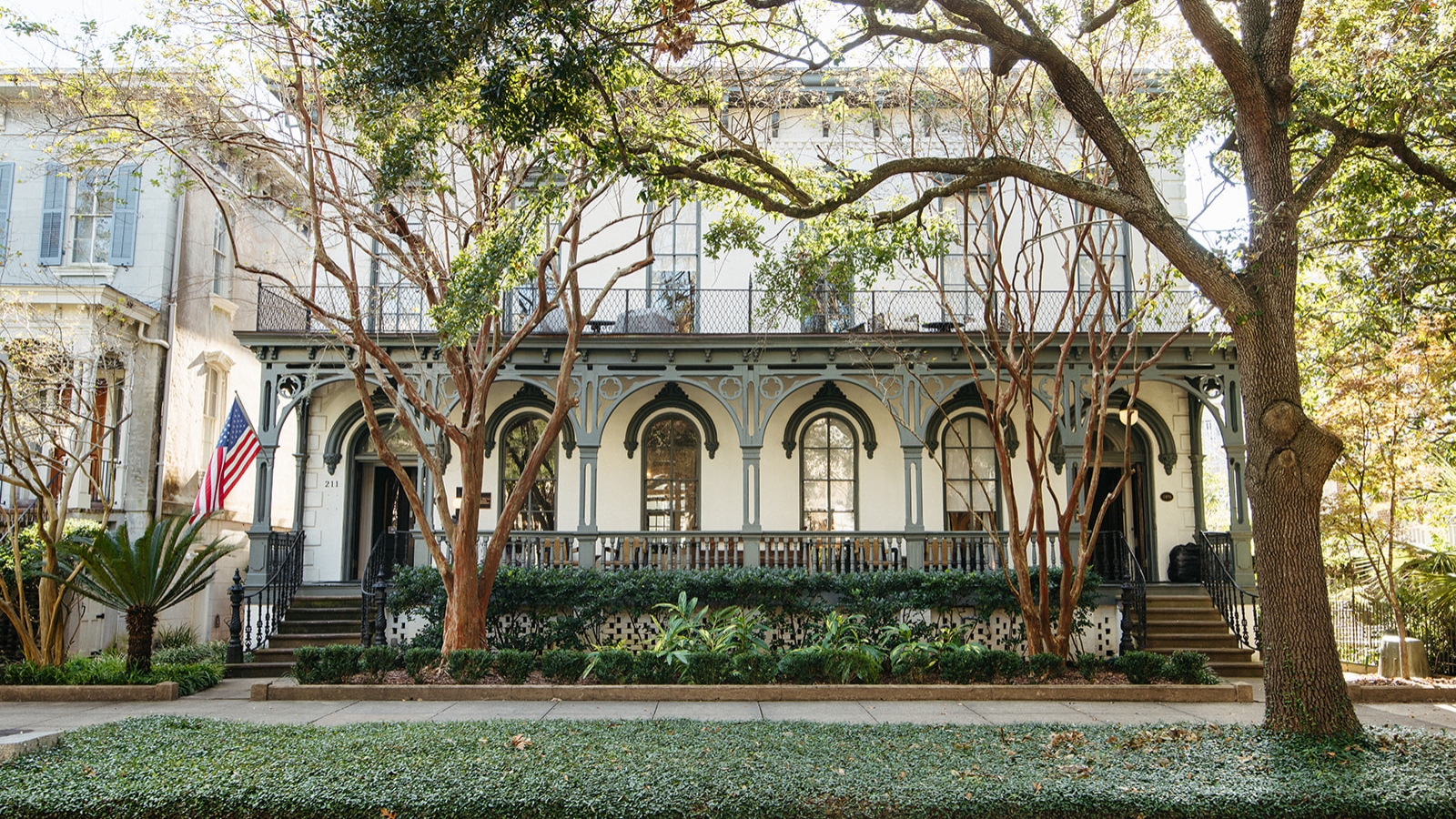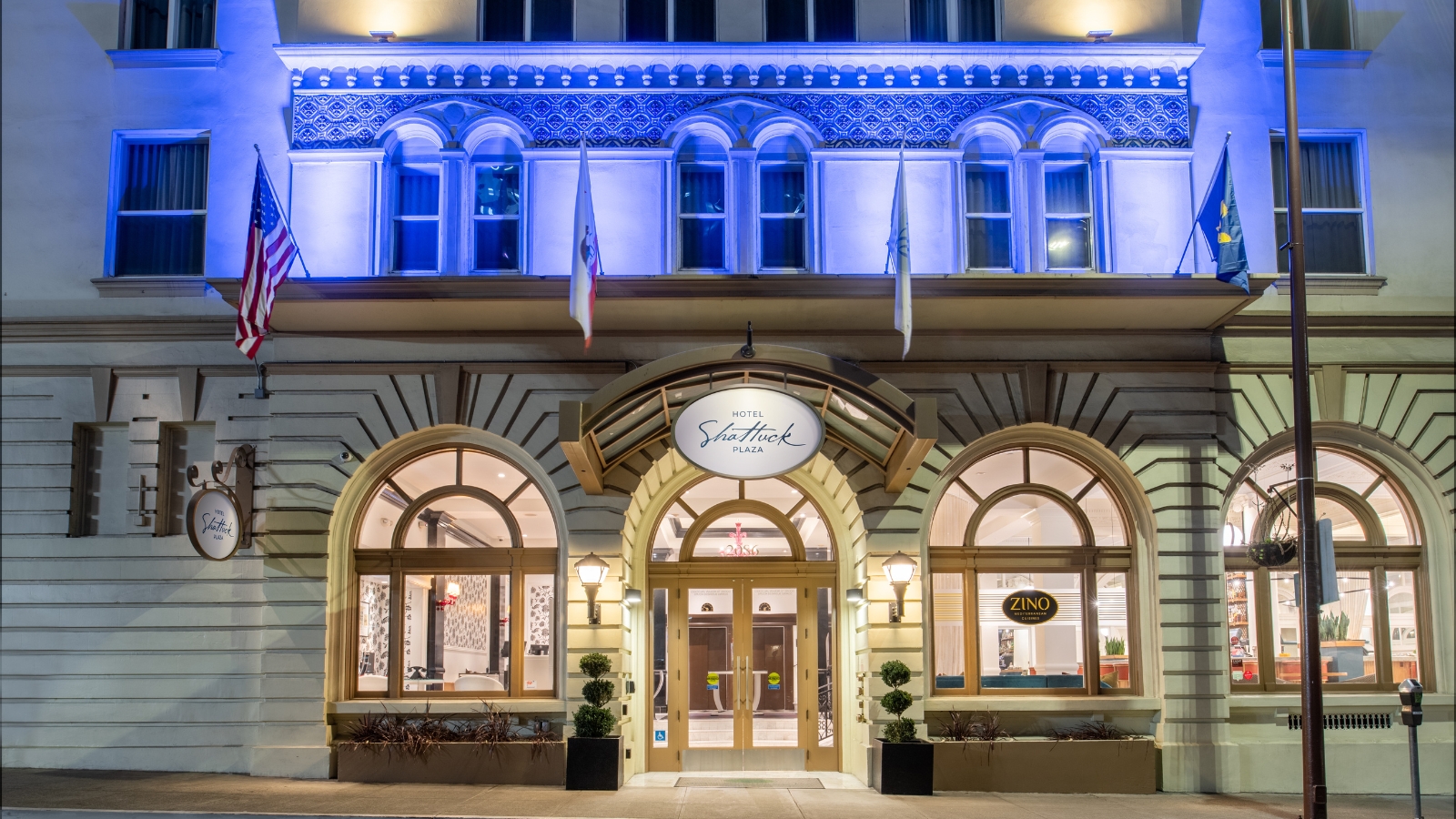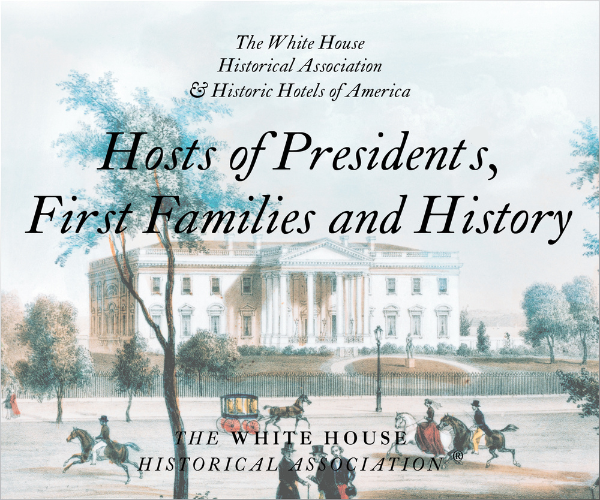Receive for Free - Discover & Explore eNewsletter monthly with advance notice of special offers, packages, and insider savings from 10% - 30% off Best Available Rates at selected hotels.
Guest Historian Series: Stanley Turkel, CMHS
Nobody Asked Me, But... No. 148;
Hotel History: The Chattanooga Choo Choo (1909), Chattanooga, Tennessee*
By Stanley Turkel, CMHS
Incorporated in 1839, Chattanooga was a river and rail town because of the geography of the region. When the first train of the Western & Atlantic Railroad arrived in 1849, the future of the community was secured. Both commercial traffic, with regional merchants using Chattanooga as an export hub, and passenger traffic gave a boost to fledgling businesses. Traveling by private railroad car was the height of luxury at the turn of the century, and Chattanooga welcomed thousands of travelers during the golden age of railroads.
Aiming to provide luxurious lodging for rail passengers, John Stanton of Boston invested $100,000 in 1870 in the construction of his exquisite Stanton House on the southern end of Market Street. When it opened in 1871, the five-story hotel boasted a dining room, barbershop, observatory, saloons, billiard rooms and, representing the pinnacle of luxury, a bathroom on every floor. French doors opened onto long balconies that overlooked expansive lawns and flower gardens. The Stanton House quickly became the place to be, hosting balls, business meetings, and dignitaries like President Rutherfold B. Hayes, who visited in 1877. The historic Chattanooga hotel was the site of the community's first introduction to Alexander Graham Bell's invention. A primitive telephone was installed in the lobby and it was among the city's first locations to have electric lights.
Nonetheless, Stanton House eventually struggled because of its location, far removed from the river and the center of town. Stanton had speculated that the city would expand to the south and envelop the Stanton House. By the turn of the century, however, the gleam had worn off the once-grand hotel and a dejected Stanton returned to his native Massachusetts.
The Terminal Station seemed destined for the similar fate of Union Station (parts of which were built before the Civil War) at the center of town, which was demolished in 1973. But Terminal Station was saved from the wrecking ball by a group of local businessmen who were inspired by the theme of the "Chattanooga Choo Choo." They invested $4 million before its new grand opening on April 11, 1973, and the beautiful Terminal Station once again opened its doors to welcome visitors to Chattanooga—this time as a unique vacation complex. With its listing on the National Register of Historic Places in 1974, the Chattanooga Choo Choo Historic Hotel is considered one of the city's first historic preservation projects. The terminal's dome room was converted into a huge dining hall. The area that once housed the baggage room became the "Station House," a restaurant with singing waiters and waitresses. A trolley car traveled the tracks behind the station, and retail shops opened along formal gardens in the former rail concourse. Authentic sleeper cars, once a refuge for wealthy travelers, were lavishly furnished as unique sleeping quarters. A hotel and convention center completed the complex.
Traveling across the nation by private railroad car was the height of luxury in the early 1900s. The railroading excitement of a bygone era is still present on board one of the 48 Victorian train car hotel rooms at the Chattanooga Choo Choo Hotel complex. Although you may be reminded of a past era while staying aboard the rail cars, you will have all of today's conveniences. All train car hotel rooms offer high speed wireless internet access. Each car includes a queen-size bed, and some cars also have a daybed with a pull-out trundle bed.
In 1989, a group of Chattanooga investors, known as Choo Choo Partners, Ltd., brought new management and invested another $4 million+ dollars in renovations to the complex. The Chattanooga Choo Choo Historic Hotel, famous in history and song, is now a magnificently restored structure for all to enjoy.
A newspaper reporter dubbed the huffing and puffing little steam locomotive the "Chattanooga Choo Choo". Although the Chattanooga's Terminal Station was significant in its role of the train era with its "Track 29", little was known about the first Chattanooga Choo Choo. Only after Glenn Miller's orchestra made the catchy song popular in the late 1940s did the name become world famous. Introduced in 1941 by the Glenn Miller Orchestra, the song was featured in the movie "Sun Valley Serenade" and performed by Tex Beineke and the Modernaires. Harry Warren wrote the original music score, while Mack Gordon took credit for the words. The Chattanooga Choo Choo song traveled fast throughout the circles of Europe during World War II, and today it is an international favorite.
*excerpted from my book Built To Last: 100+ Year-Old Hotels East of the Mississippi (AuthorHouse 2013)
Return to The Chattanooga Choo Choo
*****
About Stanley Turkel, CMHS
 Stanley Turkel was designated as the 2014 and 2015 Historian of the Year by Historic Hotels of America, the official program of the National Trust for Historic Preservation. This award is presented to an individual for making a unique contribution in the research and presentation of history and whose work has encouraged a wide discussion, greater understanding and enthusiasm for American History.
Stanley Turkel was designated as the 2014 and 2015 Historian of the Year by Historic Hotels of America, the official program of the National Trust for Historic Preservation. This award is presented to an individual for making a unique contribution in the research and presentation of history and whose work has encouraged a wide discussion, greater understanding and enthusiasm for American History.
Stanley Turkel is one of the most widely-published authors in the hospitality field. Two of his hotel books have been promoted, distributed and sold by the American Hotel & Lodging Educational Institute (Great American Hoteliers: Pioneers of the Hotel Industry and Built To Last: 100+ Year-Old Hotels East of the Mississippi). A third hotel book (Built To Last: 100+ Year-Old Hotels in New York) was called "passionate and informative" by The New York Times. His fourth hotel book was described by The New York Times: "Nostalgia for the City's caravansaries will be kindled by Stanley Turkel's...fact-filled...Hotel Mavens: Lucius M. Boomer, George C. Boldt and Oscar of the Waldorf."
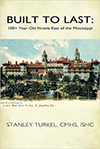
Built to Last: 100+ Year-Old Hotels East of the Mississippi is available for purchase from the publisher by visiting bookstore.authorhouse.com.

